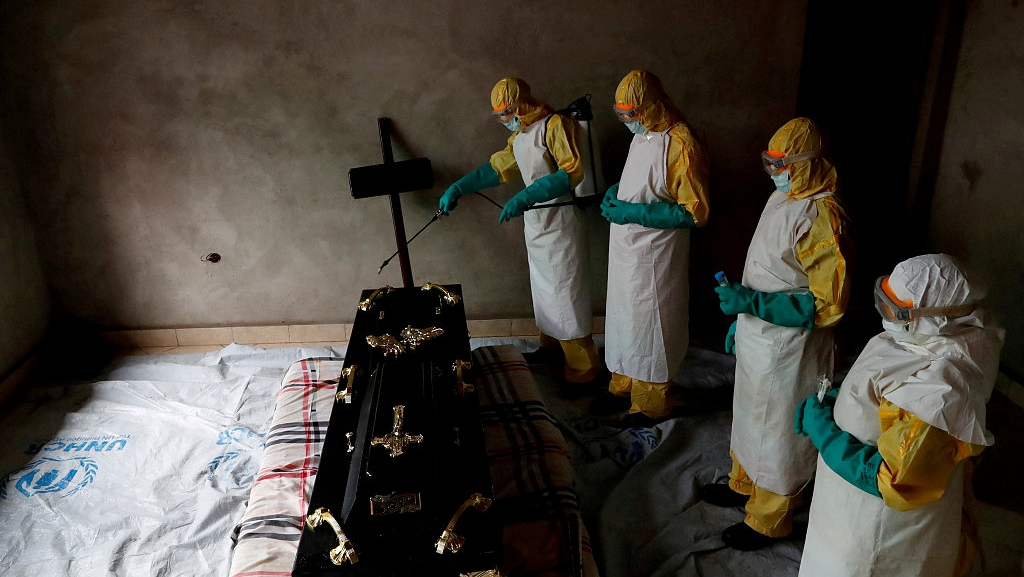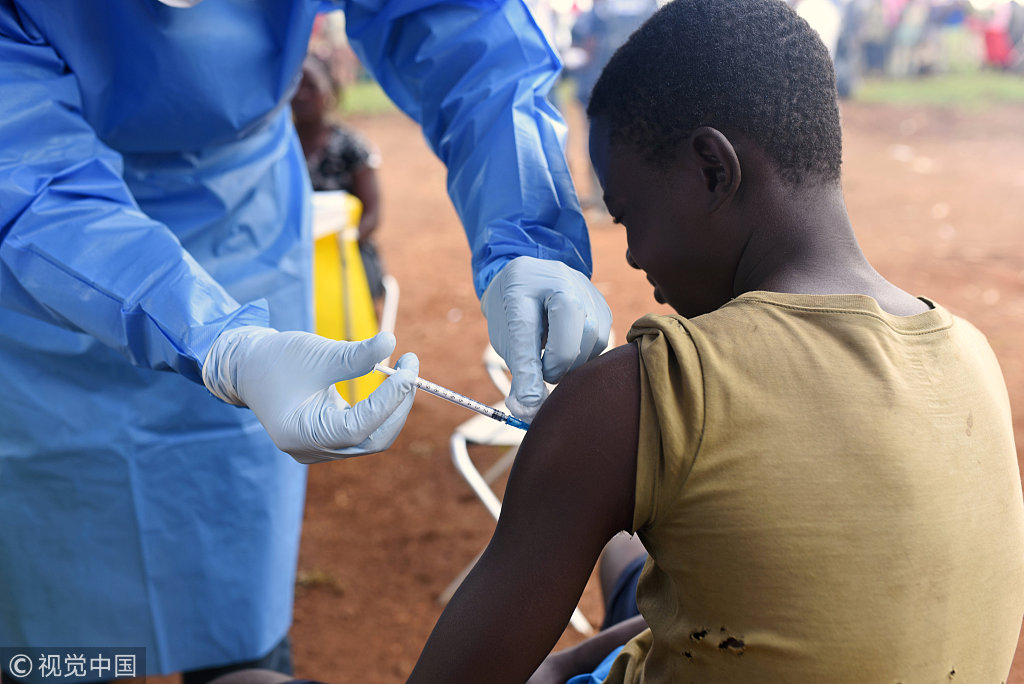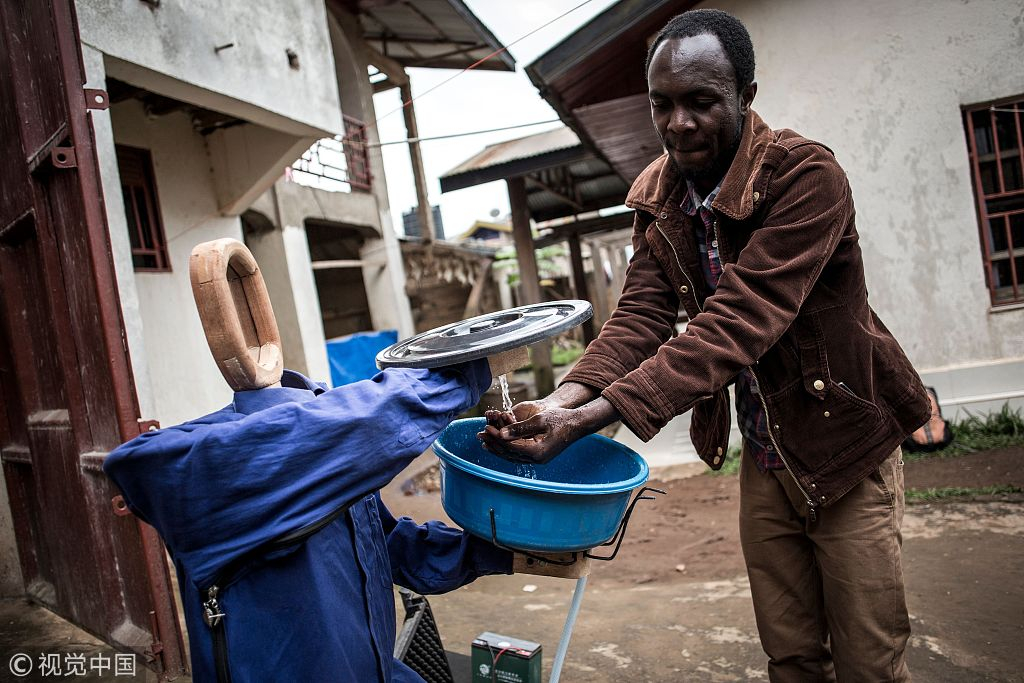
Africa
14:07, 22-Mar-2019
Congo struggles to fight Ebola amid attacks on clinics
By Nadeem Gill

Democratic Republic of Congo is facing the second largest outbreak of Ebola in history as attacks on clinics pose a further challenge to the government and humanitarian organizations struggling to fight the virus.
Over 900 people have contracted the hemorrhagic fever, and close to 600 have lost their lives in the last eight months, the World Health Organization (WHO) said in a statement.
The outbreak which was declared last August has become the country's most severe, it said.
Health authorities in the country confirmed a case of Ebola in another city of nearly one million people, Reuters reported on Thursday.

A Congolese health worker administers Ebola vaccine to a boy who had contact with an Ebola sufferer in the village of Mangina in North Kivu province of the Democratic Republic of Congo, August 18, 2018. /VCG Photo
A Congolese health worker administers Ebola vaccine to a boy who had contact with an Ebola sufferer in the village of Mangina in North Kivu province of the Democratic Republic of Congo, August 18, 2018. /VCG Photo
The health ministry wrote in a daily bulletin that the case is a six-month-old infant, whose parents appear to be fine.
The doctors are trying to identify how the child was infected, it added.
Bunia is the second-largest city in eastern Congo to confirm a case of the fever during the current outbreak.
The WHO last week confirmed the outbreak in two areas, saying it could be prevented by September.
It, however, also cited poor security in the country's militia-ravaged eastern region as well as community resistance to health workers who continue to hamper the response.
"In the midst of conflict, and in some of the most challenging conditions, Ebola responders are working round the clock to ensure people can get the information, the care and the treatment they need," the WHO said earlier this week.
The WHO said it had deployed medics and more than 300 metric tonnes of medical supplies to support patient care.
Dr. Jean-Christophe Shako, the director of Ebola operations in the northeastern city of Butembo said people believe that health clinics are places of death.

Electrical engineer Victoire Muhindo, gets ready to set up his self made automatic hand washing robot to assist in the fight against Ebola, in Butembo, March 10, 2019. /VCG Photo
Electrical engineer Victoire Muhindo, gets ready to set up his self made automatic hand washing robot to assist in the fight against Ebola, in Butembo, March 10, 2019. /VCG Photo
"People here just don't want to accept that this disease exists," he was quoted by German Magzine Der Spiegel as saying.
"They think that we're killing them with this vaccine, that our clinics are places of death, that the government wants to eradicate their tribe, the Nande," he added.
There are reports of five Ebola centers being attacked since last month, which led French medical charity Medecins Sans Frontieres (MSF) to halt its activities last month.
In one such attack in Butembo, about 30 attackers stormed a MSF clinic. They were reportedly carrying machetes, bows and arrows. The patients were evacuated. The attackers left behind leaflets that read, "We have more surprises."
The current outbreak is the second-deadliest in history behind the 2013-16 epidemic in West Africa that is believed to have killed more than 11,000 people.
(With input from Reuters)
(Cover: A healthcare worker sprays a room during a funeral of Kavugho Cindi Dorcas who is suspected of dying of Ebola in Beni, North Kivu Province of Democratic Republic of Congo, December 9, 2018. /VCG Photo)

SITEMAP
Copyright © 2018 CGTN. Beijing ICP prepared NO.16065310-3
Copyright © 2018 CGTN. Beijing ICP prepared NO.16065310-3